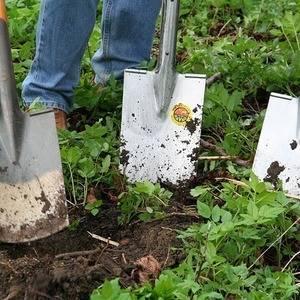
The health benefits of gardening
When spring arrives, Mother Nature wakes up. With this comes longer grass, fresh buds and leaves, moss between flagstones, annoying weeds and, if there’s a buddleia in your garden, a lot of pruning. Many people look forward to getting into the garden and sculpting it into something tame and beautiful, and it can prove a great way to keep fit and get the heart pumping.
The health risks of gardening
Unfortunately, everything that can help you to build muscle, increase cardiovascular activity and lose weight can also pose threats to your health. Whether you’re new to gardening or have been doing it for years, failing to follow precautions could result in anything from minor sprains to significant injury.
Prepare yourself
You wouldn’t lift weights or run a marathon without a suitable warm-up and the same goes for gardening. This may sound silly, but when you take into account the physical exertion involved during gardening, from stretching and bending to walking and lifting, suddenly it makes a lot more sense to prepare yourself beforehand.
How to prepare
First off, take a brisk walk around your garden for a few minutes. This will raise your pulse and body temperature, plus you can take a look at what needs to be done in the process.
Now, get your muscles and joints ready to work by doing some gentle dynamic stretching. Roll your shoulders and arms backwards, gently rotate your trunk and pelvis, and squat down to the ground while keeping your back straight. Repeat these motions for a few minutes before you start digging holes and pulling up weeds.
Protect your back
Your back is incredibly easy to injure during gardening, especially when you lose track of time or set yourself tough targets. The gripping, bending, walking, lifting, stretching and standing associated with simple gardening tasks can really take their toll, so follow these tips to stay safe and healthy:
- Instead of bending over to pull weeds, plant or do other tasks close to the ground, kneel on a soft cushion. Use tools with long handles to avoid too much bending when hoeing, digging, raking or shovelling. Also, consider the weight of your tools, as heavy loads can over-tire your muscles.
- Don’t stay too long in one position. Take a break every 15 to 30 minutes to stretch your arms, shoulders and back. Use a dolly or wheelbarrow instead of carrying heavy bags of soil or fertiliser.
- Never lift anything by simply bending over. Instead, let your leg muscles do most of the work. Grip the object while squatting, and then lift by raising your entire body, keeping your weight over your legs.
- Only rake and dig for brief periods of time. Take frequent rest breaks and mix up your gardening chores so that you don’t over-tire one part of your body.
Treat yourself to proper gear
By no means do you have to break the bank, but investing in heavy-duty gardening gloves, durable tools and any required safety equipment will help to prevent injury and strain. Even strong refuse sacks are a good idea, as a split bag results in additional bending and lifting.
Stay hydrated and look after your skin
It’s easy to become dehydrated, especially when your mind is focused on a task. Forgetting to drink water whilst gardening can seriously exhaust the mind and body, so make sure to have regular breaks and take a swig or two. Don’t wait until you’re thirsty because that means you’re already dehydrated. Meanwhile, sunscreen is essential on sunny days, and a hat can help to prevent sunstroke.
How Physio Med can help
Our skilled and helpful physiotherapists are here to help you keep gardening enjoyable and productive. Contact Physio Med for professional advice and customised tips on how to stay healthy, and advice on treating and preventing aches, strains and injuries.
Website: Contact Us Form
Website: Book Now
Email: customerservices@physiomed.co.uk
